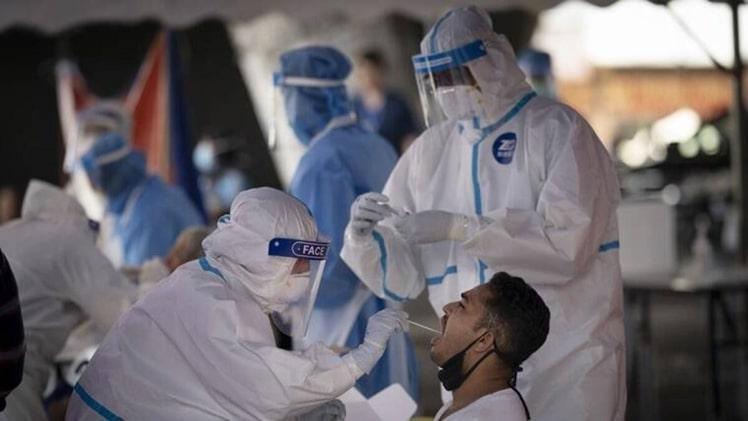By Kaylee Chan | Editor-in-Chief

Over the course of January, the recently discovered omicron variant of COVID-19 resulted in a spike in coronavirus cases in the United States, the largest since the beginning of the pandemic in 2020.
As of Jan. 11, the surge in coronavirus transmission due to omicron had led to a new peak of 760,936 daily average cases in the United States, according to a graph from the New York Times.
In Los Angeles, the peak in cases has left many hospitals understaffed, both from high numbers of hospitalizations and increasing rates of healthcare workers getting infected, according to the Los Angeles Times.
To address California’s COVID-19 situation, Governor Gavin Newsom has sought authorization for a $2.7 billion plan, with half of the money being used for improved COVID testing, increased vaccine booster shots, and more protection from teh virus for healthcare workers.
President Joseph Biden and his administration have encouraged the use of vaccines and booster shots to lessen the spread of the coronavirus. Biden described the situation as a “pandemic of the unvaccinated,” according to ABC News.
The omicron variant was first discovered in Botswana and South Africa last November, and the first case in the United States was recorded in December.
The rapid surge in cases is linked to omicron’s high transmissibility, which sets it apart from former variants such as Delta. Early research also shows that it causes less damage to the lungs, but scientists warn that this does not negate its danger.
“While omicron does appear to be less severe compared to delta, especially in those vaccinated, it does not mean it should be categorized as ‘mild,’” Tedros Adhanom Ghebreyesus, the World Health Organization’s director-general, told NPR. “Just like previous variants, omicron is hospitalizing people and it is killing people.”
According to NBC News, initial research shows that symptoms for omicron are mostly the same as for the original strain: sore throat, runny nose, fatigue, or a mild headache.
COVID-19 vaccines protect against the more serious effects of the variant, but the Center for Disease Control (CDC) website states that “breakthrough infections in people who are fully vaccinated are likely to occur.”
In light of the rise in coronavirus cases in the United States, the Food and Drug Administration has authorized the use of vaccine boosters five months after receiving the original shots, which was lessened from the former six month waiting period.
Booster shots strengthen the immunization provided by one’s initial COVID vaccinations. The Pfizer vaccine is approved for those over 12, while the Moderna and Johnson & Johnson vaccines have been approved for those 18 years and older.
Masks continue to be effective against contracting all strains of the virus. N95 masks are recommended, as they have been assessed by the National Institute of Occupational Safety and Health as being effective in filtering out coronavirus particles.
The CDC also recommends regular COVID-19 testing to avoid spreading the disease to others and numerous school districts have already employed this option.
Many public venues now check for proof of vaccination. Large scale events, such as the Sundance Film Festival and the Grammy Awards, have canceled or switched their formats to virtual due to the ongoing pandemic, according to Variety Magazine.
